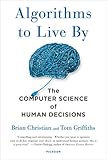When AI can independently book your travel, analyze your emails and make pricing decisions, compliance concerns multiply. Morgan Lewis attorneys Joshua Goodman, Minna Naranjo and Phillip Wiese explore how agentic AI’s unprecedented autonomy challenges existing privacy and antitrust frameworks.
Many in the tech industry view AI agents as the next frontier in the development and commercialization of AI technology. AI agents, or “agentic AI,” can be thought of as AI-powered software applications that can take in information on their own, without the same level of human instruction typically relied upon by current generative AI tools, and then use that information together with other tools to accomplish a goal.
This nascent technology is likely to raise many important questions for the sector, including novel legal questions involving antitrust and data privacy law that expand ongoing AI debates and concerns.
In fact, agentic AI is so new that currently there is no consensus in the technology industry on the precise definition of an AI agent, but the basic concept is that an AI agent is a software application that can take in information and then act on it by using a wider variety of tools to achieve a goal with a much higher degree of autonomy than current technologies. Think of a software…






























